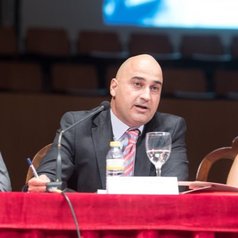
Carlos García Rivero
Associate Professor, Universitat de València
Associate Professor in Politics, Valencia University, Spain
Research Associate, Centre for International and Comparative Politics, Stellenbosch University, South Africa
Less ![]()
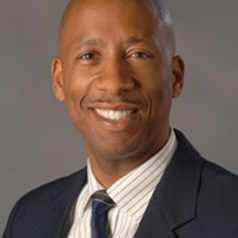
Carlton Mark Waterhouse
Professor Carlton Waterhouse has served at the Indiana University Robert H. McKinney School of Law since 2010. He is nationally recognized for his work on environmental justice and is known internationally for his research and writing on reparations for historic injustices and state human rights violations. His views have been published in the Wall Street Journal online and his articles have appeared in prestigious law journals including the Pennsylvania Journal of International Law, the Fordham Environmental Law Review, and the Rutgers Law Review. He attended college at the Pennsylvania State University where he studied engineering and the ethics of technology before deciding to pursue a legal education. He is a graduate of Howard University School of Law, where he was admitted as one of its distinctive Merit Fellows. While in law school, he was selected for an internship with the Lawyers’ Committee for Civil Rights Under Law where he participated in the preliminary formation and development of the Civil Rights Act of 1992. Professor Waterhouse currently serves as a member of the Indiana Advisory Committee to the United States Civil Rights Commission
After law school, he began his career as an attorney with the United States Environmental Protection Agency where he served in the Office of Regional Counsel in Atlanta, Georgia and the Office of General Counsel in Washington, D.C. At the EPA, he served as the chief counsel for the agency in several significant cases and as a national and regional expert on environmental justice, earning three of the Agency’s prestigious national awards. His responsibilities at the EPA included enforcement actions under numerous environmental statutes, the development of regional and national policy on Environmental Justice and the application of the Title VI of the Civil Rights Act of 1964 to the EPA permitting actions. Following a successful nine-year career with the EPA, Professor Waterhouse enrolled in a Ph.D. program in the Emory University Graduate School of Arts and Sciences as one of the select George W. Woodruff Fellows. The previous year, he graduated with honors from the Candler School of Theology at Emory University with a Master of Theological Studies degree. In 2006, he graduated from Emory with a Ph.D. in Social Ethics.
Less ![]()
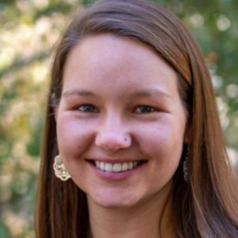
Carly Hyland
Assistant Professor of Cooperative Extension, University of California, Berkeley
Carly Hyland is an Assistant Professor of Cooperative Extension in Environmental Health Sciences and UC ANR whose work focuses on mitigating the health effects of climate change among agricultural and food systems workers.
Less ![]()
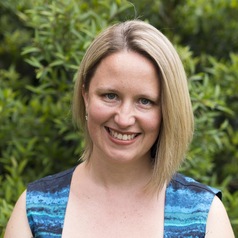
Carly Sawatzki
Dr Carly Sawatzki is a teacher-educator with expertise in curriculum and pedagogy across the Victorian and Australian curricula (VCE, Victorian Curriculum, Australian Curriculum). Carly's subject areas include upper primary Mathematics, middle school Economics & Business, senior school Business Management and senior school Psychology. Being an interdisciplinarian is critical to her key area of interest, contextual learning.
Carly's PhD explored the role of social and mathematical understandings in children's financial problem-solving and decision-making. Her ongoing research focuses on the 'Money and financial mathematics' strand of the Australian Curriculum - Mathematics in upper primary school, and has involved developing, trialling, studying, and refining unique financial dilemmas and associated pedagogies to enhance financial literacy teaching and learning. Some of her tasks have been included in the Encouraging Persistence, Maintaining Challenge (EPMC) project.
Before switching careers to teaching and academia, Carly worked in marketing and business development roles in the finance industry.
Less ![]()
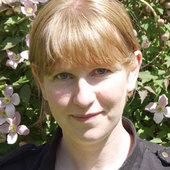
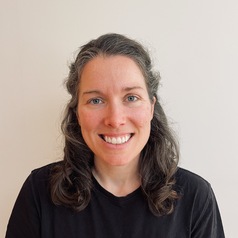
Carly Tozer
Senior Research Scientist, CSIRO
I am a senior research scientist at CSIRO with an interest in characterising the ocean-atmospheric processes influencing Australia’s weather and climate extremes, and understanding their predictability for rainfall and streamflow forecasting.
Less ![]()
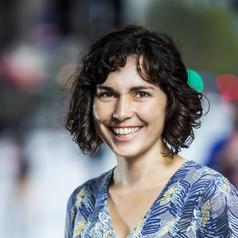
Carly Ziter
Associate professor, Biology, Concordia University
Carly Ziter is an assistant professor in the Biology Department of Concordia University, the Concordia University Research Chair in Urban Ecology and Sustainability, and a core faculty member of Concordia’s cluster for Smart, Sustainable, and Resilient Cities and Communities. As an urban landscape and ecosystem ecologist, her research focuses on how landscape structure, historical land-use, and biodiversity interact to shape the ways that nature benefits us in the cities where we live, work, and play. She leads a dynamic group of undergraduates, graduate students, and postdoctoral researchers, and collaborates frequently with colleagues across a wide range of disciplines, including designers, architects, engineers, and social scientists.
Less ![]()
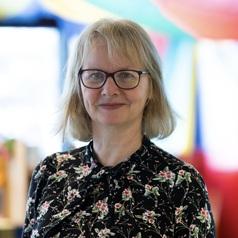
Carmel Conn
Associate Professor in Inclusive Pedagogy, University of South Wales
Carmel Conn is Associate Professor of Inclusive Pedagogy at the University of South Wales, UK. Her experience is in the area of inclusive education and disability having worked for over twenty years as a classroom practitioner, SENCo and specialist teacher. As a researcher, Carmel aims to contribute to the improvement of the education and well-being of children and young people and has carried out large-scale evaluations and smaller scale projects focused on learning support for educational inclusion. Recent projects include grouping practices used with lower attaining students and reform of the system for additional learning needs (ALN) in Wales. Carmel has published numerous articles and books, most recently co-editing the book Working with Uncertainty for Educational Change: Orientations for Professional Practice (Routledge).
Less ![]()
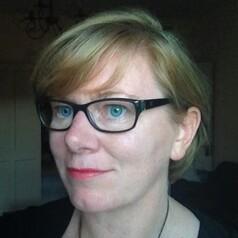
Carmel Hannan
Associate Professor in Sociology, University of Limerick
Carmel Hannan is an Associate Professor in the Department of Sociology at the University of Limerick, Ireland and an expert in Irish family dynamics and child development.
Her research has focused on stratification issues within the family particularly as they relate to class dynamics. Her latest publications is on the impact of the pandemic on children's outdoor play. She has led a number of funded research projects focusing on the effects of family structure on child development and family well-being. She is currently on a Health Research Board funded study of the effects of the pandemic on children and young adults psychological wellbeing.
Carmel received her DPhil from the University of Oxford, as a Nuffield funded scholar and held a Junior Dean position at Brasenose College, Oxford as well as a research fellow position at the Department of Social Policy and Social Work. Prior to Oxford, she worked as a senior researcher at the Institute for Social and Economic Research, at the University of Essex and at the Economic and Social Research Institute, in Dublin.
Less ![]()
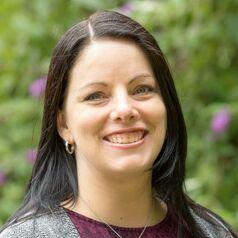
Carmel Hobbs
Postdoctoral Research Fellow, University of Tasmania
Carmel is a Postdoctoral Research Fellow in the Trauma-Informed Practice Lab in the School of Education. She is a sociologist and mixed-methods researcher broadly focusing on social justice issues impacting young people.
She is one of few researchers nationally focusing on the issue of teen domestic violence and abuse and combines this with her expertise in trauma-informed practice and education. Her research approach prioritises the voices of children, young people and the professionals who work closely with them and she positions this work within a child rights and social justice framework.
Carmel is a board member of the Youth Network of Tasmania (YNOT), and Story Island Project.
Less ![]()
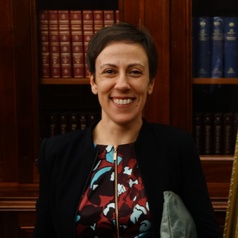
Carmel Pascale
Visiting Research Fellow, School of Humanities, University of Adelaide
Carmel Pascale is a cultural historian of twentieth century Australia and Visiting Research Fellow in the School of Humanities at the University of Adelaide. She researches settler nationalism, ideas of Britishness, the Australian Federation, and commemoration. Her PhD thesis traced the development of nationalism in South Australia from 1901 to the 1960s, with a focus on the state’s relationship with Britain and the empire.
Less ![]()
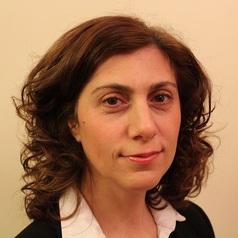
Carmel Taddeo
Senior Lecturer at UniSA Education Futures, University of South Australia
Dr Carmel Taddeo is a senior lecturer in Research Methods and Postgraduate Supervision at UniSA Education Futures with over 3 decades of experience in the education sector across primary and tertiary settings, and in face-to-face, online and hybrid learning and teaching contexts. Dr Taddeo is a member of the Centre for Research in Educational and Social Inclusion; a member of the Technology Wellbeing Roundtable initiative, an affiliate member of the Centre for Change and Complexity in Learning (C3L), and a research advisor for the Global Centre for Work Applied Learning . Dr Taddeo is a change analyst with expertise in developing and applying change theories to various contexts, including measuring behaviour and attitudinal change with technology related initiatives. She also has expertise in the ethical use of technology to achieve positive learning and life outcomes and to promote youth health and wellbeing. Her other areas of research strengths include website and program evaluation & analytics, leadership processes, cyberbullying, cybersafety and social connectedness. She is a mixed method researcher with extensive experience in online survey methods and quantitative data analysis using SPSS, SMARTPLS & AMOS software packages along with qualitative methods and incorporating youth voice and codesign. Dr Taddeo has held school board positions and is a sought after subject matter expert for national and international stakeholders related to youth wellbeing and cybersafety, including ReachOut, Sammy D Foundation, Raising Children Network, and TES (UK) and has received awards for her publications and engagement.
Less ![]()
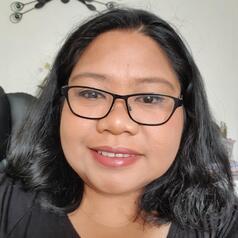
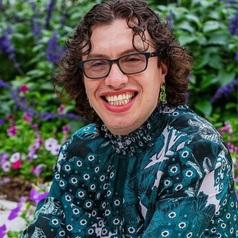
Carmen Alvaro Jarrin
Associate Professor of Anthropology, College of the Holy Cross
Dr. Carmen Alvaro Jarrín received their Ph.D. from Duke University and they are Associate Professor of
Anthropology at College of the Holy Cross. Their research explores the imbrication of medicine,
the body and inequality in Brazil, with foci on plastic surgery, genomics and gender
nonconforming activism. They are the author of The Biopolitics of Beauty: Cosmetic Citizenship
and Affective Capital in Brazil (University of California Press), which explored the eugenic
underpinnings of raciological thought among plastic surgeons, and the aesthetic hierarchies of
beauty that reinforce racial inequality in Brazil. They are also co-editor of two collections of
essays: Remaking the Human: Cosmetic Technologies of Body Repair, Reshaping and
Replacement (Berghahn Books), and Precarious Democracy: Ethnographies of Hope, Despair
and Resistance in Brazil (Rutgers University Press).
Less ![]()
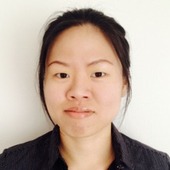
Carmen Lim
NHMRC Emerging Leadership Fellow, National Centre for Youth Substance Use Research, The University of Queensland
Less ![]()
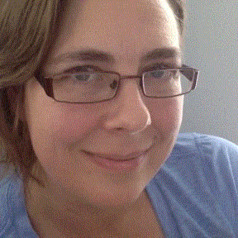
Carmen Nave
I am an anthropologist who has published on kinship and inheritance among the Asante of Ghana. I now work on an interdisciplinary team studying policing and police oversight.
Less ![]()

Carmen Beatriz Fernández
Profesora de Comunicación Política en la UNAV, el IESA y Pforzheim, Universidad de Navarra
Es consultora política y académica. PhD en Comunicación de la Universidad de Navarra (UNAV), su tesis doctoral Cum Laude se titula ‘Ciberpolítica en Latinoamérica: un modelo para medir su influencia en la inestabilidad crítica’. Preside DataStrategia Consultores y es cofundadora de la Organización de Consultores Políticos Latinoamericanos OCPLA. Es profesora de Comunicación Política en la Universidad de Navarra, el IESA (Venezuela) y la Universidad de Pforzheim (Alemania). Obtuvo una Maestría en Administración de Empresas (IESA, Venezuela) y en Campañas Electorales (Universidad de Florida, EE. UU.). Fue galardonada con el Premio Aristotle a la Excelencia 2010 por sus trabajos en ciberpolítica y parte del "Global Dream Team", que reconoce a los mejores consultores políticos del mundo.
Less ![]()
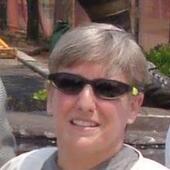
Carmen M. Nanko-Fernández
Professor of Hispanic Theology and Ministry, Catholic Theological Union
Less ![]()
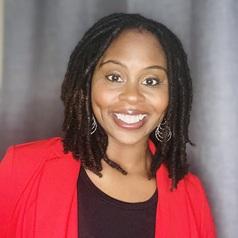
Carmen Reese Foster
Dr. Carmen Reese Foster is the Interim Online MSSW Program Director, an Assistant Professor of Practice, and the Director of Alumni Affairs at the University of Tennessee College of Social Work. She is also the Executive Director of the Coalition of Black Social Workers. Dr. Reese Foster is a 2022 DSW graduate of the University of Alabama, where she was the 3MT (Three Minute Thesis) Winner for the University and the Southern Region. While at Alabama, Carmen was the recipient of the Laura Langley Social Justice Award and the DSW Scholarship Award. Simultaneously, as a faculty of practice at the University of Tennessee, Carmen was the 2022 recipient of the Inspirational Teaching Award. Her research focus is race-based trauma and its impact on mental health.
Less ![]()
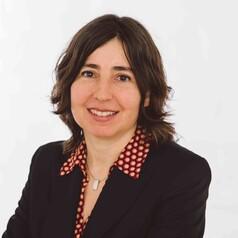
Carmit Segal
Professor of Managerial Economics, University of Zurich
Carmit Segal is a professor of managerial economics at the University of Zurich.
Less ![]()
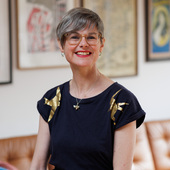
Carol Ballantine
Postdoctoral Researcher and Lecturer in Gender and Equality Studies, University College Dublin
Less ![]()
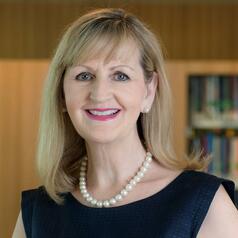
Carol Grech
Professor, University of South Australia
Professor Carol Grech commenced her academic career with the University of South Australia in 1990 as a Lecturer in Nursing. Her academic appointment followed a distinguished clinical career at Royal Adelaide Hospital (RAH) where she trained as a Registered Nurse earning a gold medal for academic performance before moving into critical care nursing at Calvary North Adelaide Hospital, Royal Adelaide Hospital, and the Lyell McEwin Hospital. In 2004 she was awarded a PhD, which led to an extensive research portfolio in patient safety and professional practice standards.
In 2012, Professor Grech was appointed Head of School: Nursing and Midwifery at UniSA. In this role she introduced a range of pedagogical innovations including embedding inquiry-based learning into all accredited curricula to stimulate students’ active engagement in learning. She re-conceived the approach to students’ clinical skills development through the design and implementation of a unique simulated hospital and health service (HHHS) to support students’ practice-based learning and readiness for clinical practicums. These innovations continue to be embedded in nursing and midwifery curricula in UniSA Clinical and Health Sciences (CHS) and provide a platform for further strengthening interprofessional learning. Professor Grech also implemented a strategy to ensure that nursing and midwifery research reflected academic staff expertise and industry need. In 2015 and 2018 Nursing research at UniSA was consecutively ranked well above world class in the Excellence in Research Australia ratings.
In 2019, Carol was appointed as the Pro Vice Chancellor: Student Engagement and Equity where she provided outstanding leadership in the development, implementation and continuous improvement of the University’s student engagement and wellbeing portfolio including championing pathways for students from non-traditional backgrounds.
Professor Grech is highly regarded within the national and international nursing community. She served on a number of professional groups, committees and boards including the Australia and New Zealand Council of Deans Nursing and Midwifery; the Independent Hospital Pricing Authority (Teaching, Training and Research); Health Workforce Australia (Productivity and Retention Standing Committee); Health Workforce Australia (Aboriginal and Torres Strait Island Health Curriculum Framework Working Group); and the Clinical Training Advisory Council (SA Health). She has also served as a reviewer for the New Zealand Health Research Council, has been a panel member for Professional Standards Committees and provided expert opinions in medico-legal cases.
Carol is an active member of the Australian College of Critical Care Nurses (ACCCN). She is a long-standing member of the National ACCCN Education Advisory Panel, was Editor of the Australian Critical Care journal (the highest ranked critical care nursing journal in the world by impact factor); and was the National Chairperson of the College’s Credentialing and Standards Committee. In 2020 Carol was awarded Life Membership of the College for service to practice, education and research in her specialist field of critical care nursing.
In recognition of her distinguished service to the University of South Australia, Professor Grech was conferred the honorary title Emeritus Professor on her retirement in 2021. This title recognises those eminent scholars who have demonstrated:
- an international reputation, and professional peer recognition, for research and scholarship;
- a significant track record of team leadership and capacity building in research or teaching;
- participation in University management and/or governance;
- service contributions to a discipline, a profession, the University and the wider community.
While having retired from UniSA in 2021, Carol remains professionally active. She is a member of the Australian Nursing and Midwifery Accreditation Council (ANMAC) Nurse Practitioner Accreditation Committee; a Board member of the Rosemary Bryant Foundation; an Editorial Board member of the Australian Critical Care journal and is a Council member of the RAH Registered Nurses’ Association.
Less ![]()
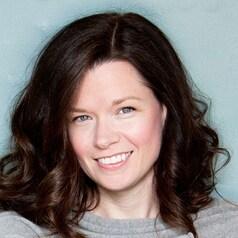
Carol Hay
Professor of Philosophy, UMass Lowell
I work primarily in normative ethics and analytic feminism, concentrating largely on the moral obligations that arise in oppressive social conditions. My other interests include liberal social and political philosophy, feminism in the liberal political tradition, oppression studies, and Kantian ethics.
Less ![]()
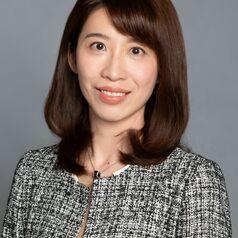
Carol Hsu
Professor of Business Information Systems, University of Sydney
I am a Professor at the University of Sydney Business School. My research interests broadly center around the interactions between institutional properties, technological features and organizational strategies that influence the design and implementation of cybersecurity management.
Before joining the University of Sydney, I have worked in several leading institutions in the Asia-Pacific including City University of Hong Kong, National Taiwan University and Tongji University. I currently serve as Senior Editor at the Journal of Strategic Information Systems, Information Systems Journal, and Information & Management, and on the editorial board of the Journal of the Association for Information Systems, and the IEEE Transactions on Engineering Management.
Less ![]()
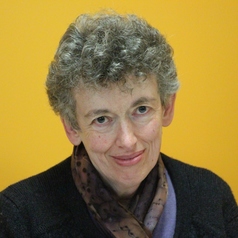
Carol Johnson
Carol Johnson has published numerous chapters and articles on Australian politics. She is also the author of the books, The Labor Legacy: Curtin, Chifley, Whitlam, Hawke (Allen and Unwin, Sydney, 1989) and Governing Change: From Keating to Howard (Network Books, Perth, 2nd edition 2007). Most recently she co-edited, Carol Johnson and John Wanna (with Hsu-Ann Lee), Abbott's Gambit: The 2013 Australian Federal Election (ANU Press, Canberra, 2015) http://press.anu.edu.au/titles/abbotts-gambit/
Less ![]()
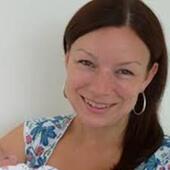
Carol Kingdon
Senior Research Fellow, Women and Children's Health, University of Liverpool
Less ![]()
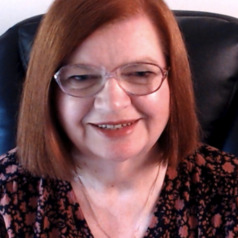
Carol Oliver
Professor in Science Communication and Astrobiology, UNSW Sydney
I research and teach evidence-based science communication in the School of Biological, Earth and Environmental Sciences at the University of New South Wales, where I also teach astrobiology.
Less ![]()

Carol Opdebeeck
Senior Lecturer, Psychology, Manchester Metropolitan University
I obtained my MSc in Foundations of Clinical Neuropsychology (2012) and PhD (2016) from Bangor University. My PhD thesis was entitled ‘Cognitive Reserve, Mood and Cognitive Function in Later Life’.
My research focuses on cognitive health and well-being in later life. I am particularly interested in why some people experience more successful ageing than others and what lifestyle factors and individual differences influence cognitive function and well-being in older people.
Less ![]()
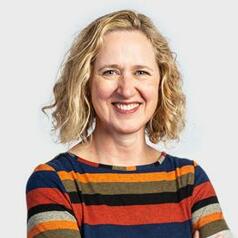
Carol Richardson
Professor of Early Modern Art History, History of Art, The University of Edinburgh
Carol M Richardson specialises in institutional patronage, particularly that of the Early Modern period. Her research to date has been primarily concerned with the papal city, Rome, and the ways in which the patronage of individuals combine to create corporate identity. A particular feature in all things Roman is the embeddedness of the long history of the city in the works of art and architecture created there.
Being a native Scot, Carol took both her degrees close to home, at the University of St Andrews. She went on to teach at Aberdeen, Edinburgh and The Open University in Milton Keynes, moving to Edinburgh in 2012. She is passionate about the History of Art as the ultimate interdisciplinary subject area, which makes it both inclusive and challenging. She believes it is an antidote to media attention on global crisis and humanity’s inhumanity as art often emerges from, comments on, sometimes resolves and almost always atones for some of our worst actions.
Carol’s most recent books include Gilio's Dialogue on the Errors and Abuses of Painters (2018) in collaboration with Michael Bury and Lucy Byatt and Old Saint Peter’s, Rome (2013) which came out of a conference she co-organised in Rome. She has published two books on Renaissance cardinals: her monograph Reclaiming Rome (2009), which was described in reviews as ‘a milestone’ and ‘essential reading’, and The Possessions of a Cardinal (2011) co-edited with Mary Hollingsworth).
She has also written for and edited widely-used text books, including the anthology of primary sources, Renaissance Art Reconsidered (Blackwell, 2006).
From October 2018 to June 2019 she is Paul Mellon Senior Fellow, completing her book, The Last English Catholic Church Remaining in the World: Art and Sacred Geography in the 1580s.
She has just finished a book chapter on the dress and regalia of early modern cardinals for the Brill Research Companion to the Early Modern Cardinal and an article on Andrea Sansovino for Sculpture Journal.
Less ![]()
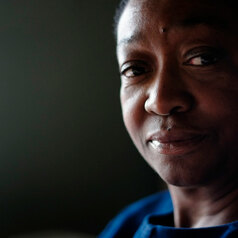
Carol Tulloch
Professor of Dress, Diaspora and Transnationalism, University of the Arts London
Carol Tulloch is a writer, curator and Professor of Dress, Diaspora and Transnationalism at the University of the Arts London based in the School of Design at Chelsea, Camberwell, Wimbledon (CCW). She is an Honorary Senior Research Fellow at the Victoria and Albert Museum, a Trustee of Autograph, and sits on the Paul Mellon Publications Committee, and the Museum of London Academic Board.
Her books include Black Style (V&A, 2004), The Birth of Cool: Style Narratives of the African Diaspora (Bloomsbury, 2016) and The Persistence of Taste: Art, Museums and Everyday Life After Bourdieu (Routledge, 2018). Carol has contributed to publications, most recently: ‘Style Activism: The Everyday Activist Wardrobe of the Black Panther Party and Rock Against Racism Movement' in Fashion and Politics (Yale, 2019), ‘Long Time Gyal Me Never See You’ in Akeem Smith: No Gyal Can Test, (Kaleidoscope 38, 2021), ‘Snap!: Photography as a Monument to Anti-Racism in Britain’ in Art & the Public Sphere (Intellect, 2021), ‘Epiphanies of Dress’ in Lubaina Himid (Tate, 2021), ‘T-Shirt Matters’ in Fashion Knowledge: Theories, Methods, Practices and Politics (Intellect, 2022), ‘We haven’t got here just on our own. It’s a conversation: An interview with Carol Tulloch’, in The European Journal of Cultural Studies (Sage, 2022).
Her curated and co-curated exhibitions include Tools of the Trade: Memories of Black British Hairdressing (Black Cultural Archives, 2001), Grow Up! Advice and the Teenage Girl (The Women’s Library, 2002), The March of the Women: Suffragettes and the State (National Archives, 2003), Black British Style (V&A, 2004), A Riot of Our Own (Chelsea Space, 2008), Handmade Tales: Women and Domestic Crafts (The Women’s Library, 2010), Rock Against Racism (Autograph, 2015), Jessica Ogden: Still (Marylebone, 2017).
Carol’s media contributions include: interviewee Art of Now: Race and Fashion, BBC Radio 4 (2019), profile portrait in Maria Grazia Chiuri’s portfolio edition of Frankfurter Allgemeine Quarterly Magazine (2019), contributor to Cool: Sunglasses, Style and American Counter Culture, BBC World Service (2018), ‘Dressing well is almost part of the DNA of the black community’,The Observer (2016).
Less ![]()
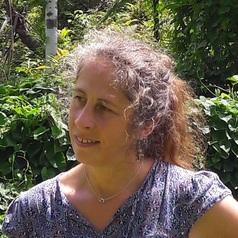
Carol Wagstaff
Research Dean for Agriculture, Food and Health, University of Reading
Carol was appointed as Assistant Professor at University of Reading in January 2007 and promoted to Professor of Crop Quality for Health in 2017. Carol is presently Research Dean for Agriculture Food and Health and was a member of the Agriculture Food and Veterinary Science Unit of Assessment panel for REF2021. Carol leads a research group that takes a food-system wide approach to improving the quality of fresh produce and ensuring that everyone has access to it. She directs FoodSEqual, one of four projects funded as part of a £47.5 million investment by government into transforming the UK food system, which aims to co-produce healthy, sustainable food systems for disadvantaged communities.
When not supporting academic research Carol can most likely be found training and competing her dressage horses, or nurturing her garden and discovering just how difficult it is to try to grow your own food.
Less ![]()
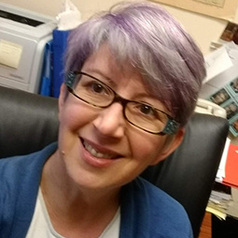
Carol E. Harrison
Professor of History, University of South Carolina
Professor Harrison regularly teaches the survey of European history, women in modern Europe, the Enlightenment and the French Revolution. She also teaches graduate seminars on feminist theory and methodology. Her first book, The Bourgeois Citizen in Nineteenth-Century France: Gender, Sociability, and the Uses of Emulation, explored the formation of a male bourgeois elite in provincial France. Her second book, Romantic Catholics: France's Postrevolutionary Generation in Search of a Modern Faith examines how lay French women, men, and children practiced their faith, aspiring to create a revitalized Catholicism that could reconcile itself with revolutionary political principles.
Less ![]()
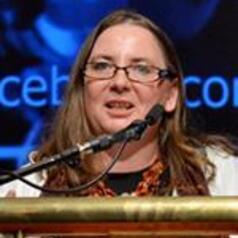
Carola Boehm
Professor of Arts and Higher Education, Staffordshire University
Carola Boehm is Professor of Arts and Higher Education at Staffordshire University. She is the author of: BOEHM, C. (2022). Arts and Academia: The Role of the Arts in Civic Universities. Bingley: Emerald Publishing Limited. Available from: https://www.emerald.com/insight/publication/doi/10.1108/9781838677275
Having degrees both from the arts (music) as well as the sciences (electrical engineering, computer science) I am a genuine interdisciplinarian. I am passionate about interdisciplinarity & creativity, the international context, and the role that universities play in our creative sectors and communities. I have worked both in academia and industry, including carrying out industry consultancies and I see myself as an academic leader with an in-depth view of Higher Education in Britain today.
Less ![]()
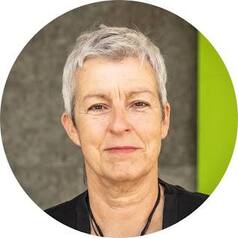
Carola Lentz
Professor of Anthropology, Johannes Gutenberg University of Mainz
Carola Lentz earned her doctorate at the University of Hanover in 1987 and qualified as professor (Habilitation) in 1996 at the Free University of Berlin. From 1996 until 2002 she was professor of anthropology at Goethe University Frankfurt, and from 2002 until 2019 at Johannes Gutenberg University Mainz, where she is currently senior research professor. She served as president of the German Anthropological Association (2011-2015) and vice-president of the Berlin-Brandenburg Academy of Sciences and Humanities (2018-2020). Visiting professorships and fellowships have taken her to France, the Netherlands, the United States and South Africa. As a fellow at the Institute for Advanced Study Berlin she led a focus group on the subject of Family History and Social Change in West Africa (2017-2018). Her research interests include ethnicity, nationalism, colonialism, politics of remembrance, middle classes in the Global South and labour migration. She conducted field research first in South America and, since 1987, regularly in West Africa. Her publications include Land, Mobility and Belonging in West Africa (2013), Remembering Independence (2018) and Imagining Futures: Memory and Belonging in an African Family (2022). Since 2020, she serves as president of the Goethe-Institut.
Less ![]()
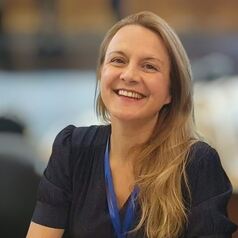
Carole Aurouet
Enseignante-Chercheuse en Etudes cinématographiques et audiovisuelles, Université Gustave Eiffel
Carole Aurouet est docteure en Littérature et civilisation françaises et latines de l’Université Sorbonne nouvelle (CNU 9e section) et maîtresse de conférences habilitée à diriger des recherches à l’Université Gustave Eiffel en Etudes cinématographiques (CNU 18e section).
Elle est membre du Laboratoire LISAA (Littératures, SAvoirs et Arts) et de l'équipe CCAMAN (Confluences, Cinématographiques, Audiovisuelles, Musicales et Arts numériques).
Elle fait partie du consortium du projet ANR Ciné08-19 (histoire du cinéma en France de 1908 à 1919) porté par Laurent Véray.
Spécialiste de l’œuvre protéiforme de Jacques Prévert (théâtre, poésie, cinéma, collages), ses recherches sont aussi centrées sur les relations qu’entretiennent la littérature et le cinéma, et plus spécifiquement la poésie et le cinéma. D’autres poètes sont ainsi au centre de ses travaux : Guillaume Apollinaire, Pierre Albert-Birot, Antonin Artaud, Robert Desnos, Benjamin Péret, etc.
Dans ce cadre, elle convoque la génétique scénaristique, pour mettre en exergue les sentiers de la création cinématographique, tant au niveau de l’attribution du travail des uns et des autres dans une entreprise collective qu’au niveau de la spatialisation de la pensée créatrice ou encore de la socialisation de l’écriture scénaristique.
Elle dirige trois collections : "Le cinéma des poètes" chez Quidam éditeur, "Les films sélectionnés" aux éditions Gremese et "Le cinéma invisible" aux éditions Invenit.
Less ![]()
- Market Data























